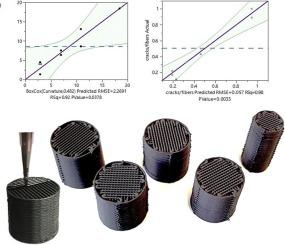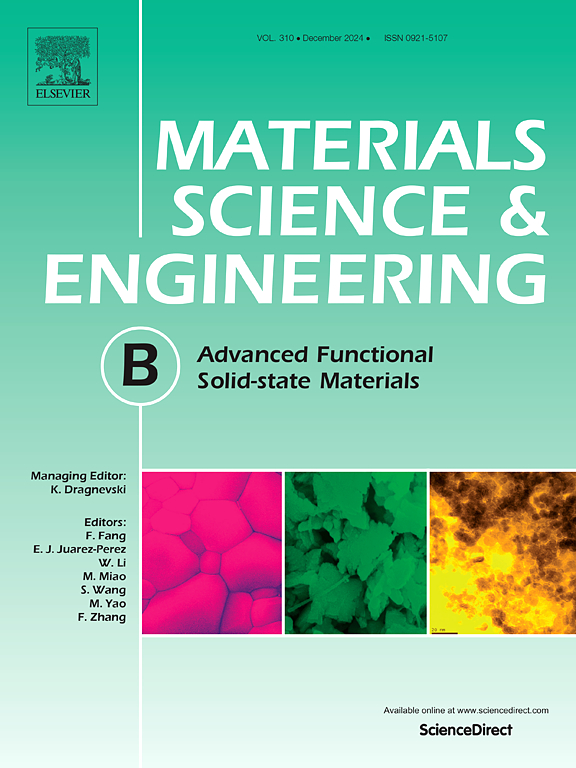3D printed CuZnAl2O3-based catalysts for direct CO2 hydrogenation to DME, optimization and scale up
IF 3.9
3区 材料科学
Q2 MATERIALS SCIENCE, MULTIDISCIPLINARY
引用次数: 0
Abstract
This work reports the development, optimization and subsequent scale-up of 3D printed catalyst structures for direct CO2 hydrogenation to DME. To ensure compatibility between the used Cu-ZnO-Al2O3 (CZA) catalyst and the acid form H-ZSM-5 co-catalyst, a new binary polymeric binder system, based on polyethyleneimine (PEI) and methylcellulose (MC), was selected. The 3D-printing paste composition was optimized through 2 successive Design of Experiments (DOE) to achieve (i) good textural properties that ensure catalytic activity and (ii) improved mechanical integrity and printability. The DOE unveiled the critical link between the pH of the printing paste and the preservation of textural properties and catalytical activity of the printed catalysts. Finally, the successful scale-up of the 3D-printed catalyst structures was demonstrated using the optimized printing paste, and the performance of the final catalysts was evaluated by catalytic testing and accompanied X-ray Diffraction (XRD), Scanning Electron Microscopy (SEM) and Energy Dispersive Spectroscopy (EDS) analyses.

基于 CuZnAl2O3 的 3D 打印催化剂用于二氧化碳直接加氢制二甲醚、优化和放大
这项研究报告了用于二氧化碳直接加氢制二甲醚的三维打印催化剂结构的开发、优化和后续放大。为确保所使用的 Cu-ZnO-Al2O3 (CZA) 催化剂与酸性 H-ZSM-5 助催化剂之间的兼容性,选择了一种基于聚乙烯亚胺 (PEI) 和甲基纤维素 (MC) 的新型二元聚合物粘合剂体系。通过两次连续的实验设计(DOE)对 3D 打印浆料成分进行了优化,以实现(i)确保催化活性的良好质地特性和(ii)改善的机械完整性和可打印性。设计实验揭示了印刷浆料的 pH 值与保持印刷催化剂的质地特性和催化活性之间的关键联系。最后,使用优化的打印浆料成功地放大了三维打印催化剂结构,并通过催化测试和伴随的 X 射线衍射 (XRD)、扫描电子显微镜 (SEM) 和能量色散光谱 (EDS) 分析评估了最终催化剂的性能。
本文章由计算机程序翻译,如有差异,请以英文原文为准。
求助全文
约1分钟内获得全文
求助全文
来源期刊

Materials Science and Engineering: B
工程技术-材料科学:综合
CiteScore
5.60
自引率
2.80%
发文量
481
审稿时长
3.5 months
期刊介绍:
The journal provides an international medium for the publication of theoretical and experimental studies and reviews related to the electronic, electrochemical, ionic, magnetic, optical, and biosensing properties of solid state materials in bulk, thin film and particulate forms. Papers dealing with synthesis, processing, characterization, structure, physical properties and computational aspects of nano-crystalline, crystalline, amorphous and glassy forms of ceramics, semiconductors, layered insertion compounds, low-dimensional compounds and systems, fast-ion conductors, polymers and dielectrics are viewed as suitable for publication. Articles focused on nano-structured aspects of these advanced solid-state materials will also be considered suitable.
 求助内容:
求助内容: 应助结果提醒方式:
应助结果提醒方式:


